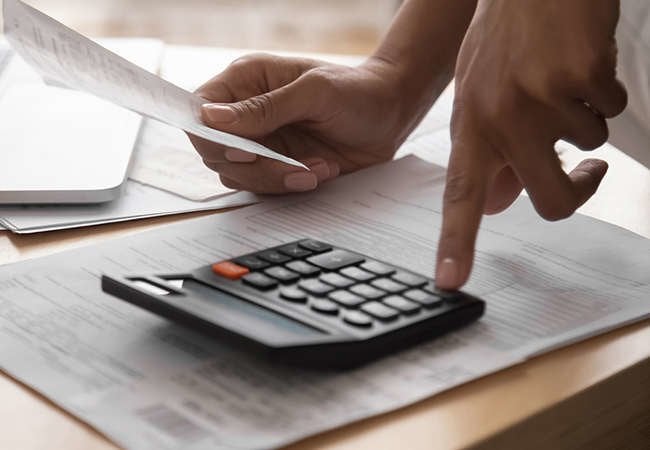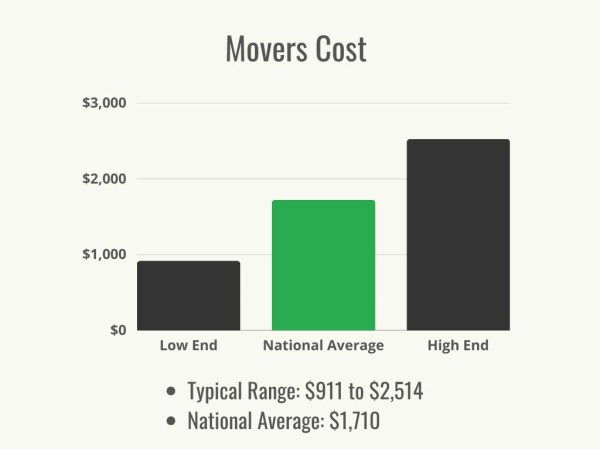We may earn revenue from the products available on this page and participate in affiliate programs. Learn More ›
If you’ve recently done some downsizing or decluttering, you may have taken a car full of items you no longer needed to a local charity for donation. Donating to a charity can put your items to good use helping others who are less fortunate, but did you know that it can also help you? In addition to clearing up space in your home, donating clothing, books, electronics, and appliances you no longer need can help you when tax time comes around. The IRS allows you to deduct the fair market value of the items you donate when you file your taxes.
Keeping a record of the items you donate and requesting a receipt from the charity will provide you with the documentation required in the event of an audit. Pairing this information with the donation value guide below can help you make sure that you aren’t overpaying on your taxes. Bear in mind, however, that you can’t take advantage of this unless your other itemized deductions, such as mortgage interest, taxes, and medical expenses, exceed the standard deduction set by the IRS.
What is “fair market value”?
“Fair market value” refers to the price that a consumer would pay for an item in its current condition. This means that even if you spent $1,000 for the television you’re planning to donate, you won’t be able to deduct the full $1,000 off of your taxes. Rather, you’ll need to look up the current value of the television, or other item, given its age and condition. You can compare the prices of used items being sold in second-hand stores and cross-reference donation valuation guides, such as the one below, to help you determine an item’s fair market value. Alternatively, you can enter the charity’s information and the items donated into TurboTax’s ItsDeductible website or app, and ItsDeductible will calculate fair market value—and tally your donations for you.
What factors does the IRS use to determine fair market value of donated items?
Unfortunately, there is no cut-and-dried rule or formula to follow when trying to determine the fair market value of an item. According to the IRS, you need to assess how desirable the item is, its use and functionality, whether it is scarce or easy to come by, and any other factors that could impact its value.

How do I document donations I’ve made throughout the year?
Documentation is key when you’re planning to deduct donations on your tax return. You want to have a paper trail and evidence of any donations you made in the event you get audited. Keeping clear records of what you donated and when you donated it will also make it easier when you are ready to complete your tax return.
Before you donate, keep in mind that you’ll also be able to deduct items that are given to a qualified tax-exempt organization. If you are unsure of the status of the organization you wish to donate to, you can check with section 501(c)(3) of the Internal Revenue Code.
If you donate items with a fair market value under $250, obtain a receipt from the organization with their name and address. The receipt should include the date of the donation, the location of the donation, and a detailed description of the items that were donated. In some cases, it may not be possible to receive a receipt. In these instances, be sure to keep a record of the donation you made including the name and address of the organization, the date you donated the items, a description of what you donated, and the fair market value and a description of how the fair market value was calculated for the items.
If you are donating an item valued over $500, the documentation requirements vary, so check the IRS tax code or consult with an accountant.
Donation Value Guide
Use the donation value guide below to help you determine the fair market value for common household items. Keep in mind that the fair market value for your specific items may vary based on their age, condition, and other factors.
Appliances
Confirm that appliances still function properly and are fully usable before donating.
Electric stove: $78 to $156
Gas stove: $52 to $130
Microwave: $10 to $103
Refrigerator: $51 to $259
Freezer: $25 to $100
Washing machine: $41 to $156
Dryer: $47 to $93
Air conditioner: $21 to $93
Space heater: $8 to $23
Furniture
Donated furniture should be functional, clean, and in gently used condition.
Twin bed: $35 to $75
Full size bed: $50 to $170
Dresser: $20 to $100
Sofa: $35 to $200
Upholstered chair: $26 to $100
Dining room set: $150 to $900
Desk: $26 to $145
Coffee table: $15 to $67
End table: $10 to $52

Small Housewares
Housewares and small appliances should be clean and functional.
Vacuum cleaner: $5 to $60
Coffee maker: $5 to $10
Iron: $3 to $10
Radio: $1 to $10
Mixer/Blender: $5 to $21
Pots and Pans: $1 to $3
Griddle: $4 to $12
Floor lamp: $6 to $52
Kitchen utensils: $0.50 to $2
Plate: $0.50 to $3
Glass/Cup: $0.50 to $2
Electronics
Confirm that any electronics you donate are in working condition.
Laptop: $20 to $108
Desktop computer: $32 to $229
Printer: $5 to $67
Keyboard: $8 to $15
Mouse: $4 to $6
Tablet: $25 to $150
eReader: $10 to $50
Cell phone: $25 to $100
DVD player: $8 to $16
Television: $10 to $298

Clothing
Donated clothing should be in gently-used condition and should not have any holes or large stains.
Men’s Pants: $4 to $23
Men’s Shirt: $4 to $9
Men’s Two-Piece Suit: $5 to $62
Men’s Shoes: $3 to $21
Women’s Dress: $6 to $28
Women’s Blouse: $4 to $9
Women’s Sweater: $4 to $13
Women’s Shoes: $3 to $21
Children’s Pants: $2 to $10
Children’s Sweater: $2 to $10
Children’s Snowsuit: $2 to $10
Children’s Boots: $6 to $10
Vehicles
If you’re planning on donating a car, boat, or aircraft, it is best to consult with a tax accountant. The rules for deducting vehicle donations are not as clear as they are for other household items, and depending on how the donation is used by the charity you donate it to, there can be a few different options when it comes to determining the vehicle’s value.

















